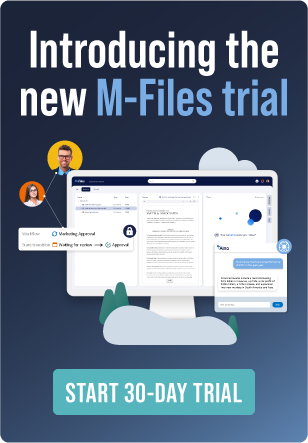Enterprise Solutions in 2025: The Role of AI Trends
AI 2025: Transformative Trends Shaping the Future of Enterprise Solutions

By Mika Turunen, Senior Vice President, Product and Engineering at M-Files
Explore the cutting-edge trends in Artificial Intelligence. Dive deep into the transformative advancements shaping the future of AI and discover how these innovations will redefine enterprise solutions.
AI Agents Will Become Essential for Software Vendors In 2025
AI agents will become as essential as robust APIs for software vendors, marking a new rite of passage. In 2025, software vendors will be expected to deliver capable, trustworthy, and secure AI agents that seamlessly integrate with other systems. No-code and natural language environments will enable enterprises to easily extract insights and orchestrate automation across platforms, fostering greater efficiency and innovation. As the year progresses, we can expect significant advancements in AI agent capabilities as vendors address the challenges of trust, security, and interoperability, making them integral to enterprise solutions.
Data Integrity Will Emerge as a Key Enabler for AI Decision-Making In 2025
We’ve all heard that data is the fuel for AI, but its role has evolved. Data is no longer just used to train AI; it now serves as the foundation for AI systems to reference, respond, and make decisions in real time. The relevance, accuracy, and security of this data are critical to ensure AI can function effectively. In 2025, we will see a renewed focus on information management, not only for human consumption but also for optimizing AI’s ability to process, analyze, and act on data in a secure and efficient manner.
Data Management Will Become the Foundation for AI Success
In 2025, data management will cement itself as the cornerstone for organizations aiming to unlock the potential of generative AI and large language models. Companies must master the basics: understanding what data to store, how to store it, where, why, and for how long. Without curated, connected, and confidential data, even the most advanced AI tools, including Natural Language Processing (NLP), will fall short. Poor data management limits AI’s effectiveness, while a strong data strategy unlocks higher-value opportunities. As AI adoption grows, data management will evolve from a backend necessity to a critical skill every company must excel in to drive success.
Diverging AI Regulations Will Shape Enterprise Strategies
In 2025, the stark contrast between AI regulatory approaches in the EU and the US will create an uneven playing field for enterprises. The EU’s comprehensive, preemptive regulations will impose significantly higher compliance costs on its companies compared to those operating in less regulated regions like the US. For multinational enterprises, this regulatory disparity may lead to fragmented AI strategies, with subsidiaries in different geographies facing varying levels of access to and adoption of new technologies. Balancing compliance with innovation will become a critical challenge for global organizations navigating these divergent frameworks.
State-Specific AI Regulations Will Complicate US Compliance
Following nearly 700 legislative proposals related to AI in 2024, states will continue to ramp up their efforts next year, addressing a broad range of issues surrounding AI use, ethics, and regulation. In 2025, state-specific AI laws and regulations in the US are expected to be enacted on a larger scale, presenting significant compliance challenges for businesses operating across multiple states. These state-level regulations will vary in scope and requirements, creating complexity for US operations that must adapt to a patchwork of rules. Companies will need to stay agile and proactive to navigate this evolving regulatory landscape, ensuring they meet compliance standards in each jurisdiction while maintaining consistent AI strategies.




